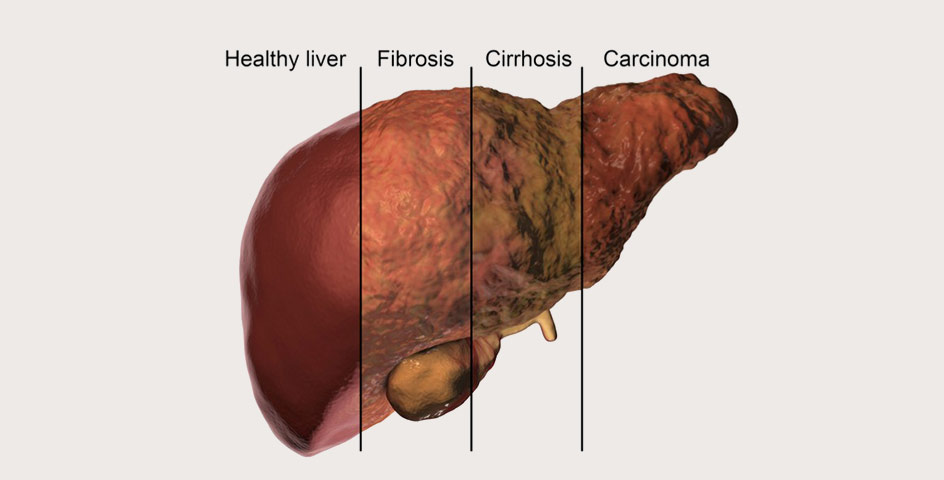The liver is an essential organ that has many functions in the body, including making proteins and blood clotting factors, manufacturing triglycerides and cholesterol, glycogen synthesis, and bile production.

The liver is a large organ that sits on the right-hand side of the belly.
The liver is the body’s largest internal organ.
Many different disease processes can occur in the liver, including infections such as hepatitis, cirrhosis (scarring), cancers, and damage by medications or toxins.
Symptoms of liver disease can include
- jaundice,
- abdominal pain and swelling,
- confusion,
- bleeding,
- fatigue, and
- weight loss.
Alcohol can be toxic to the liver (hepatotoxic), especially in high doses, and long-term alcohol abuse is a common cause of liver disease.
The liver is involved in metabolizing many toxins, including drugs and medications, chemicals, and natural substances.
Liver Disease Early Symptoms, Signs, Types, and Treatment
The liver has many functions in the body. When it is damaged, it can cause liver disease. Signs and symptoms of liver disease depend on the cause, but may include:
- Weakness and fatigue
- Weight loss
- Nausea
- Vomiting
- Jaundice (yellow skin and eyes)
What is the liver? What is its function?
The liver has multiple functions. It makes many of the chemicals required by the body to function normally, it breaks down and detoxifies substances in the body, and it also acts as a storage unit.
Hepatocytes (hepar=liver + cyte=cell) are responsible for making many of the proteins (protein synthesis) in the body that are required for many functions, including blood clotting factors, and albumin, required to maintain fluid within the circulation system. The liver is also responsible for manufacturing cholesterol and triglycerides. Carbohydrates are also produced in the liver and the organ is responsible for turning glucose into glycogen that can be stored both in the liver and in the muscle cells. The liver also makes bile that helps with food digestion.
The liver plays an important role in detoxifying the body by converting ammonia, a byproduct of metabolism in the body, into urea that is excreted in the urine by the kidneys. The liver also breaks down medications and drugs, including alcohol, and is responsible for breaking down insulin and other hormones in the body.
The liver is also stores vitamins and chemicals that the body requires as building blocks. These includes:
- vitamin B12,
- folic acid,
- iron required to make red blood cells,
- vitamin A for vision,
- vitamin D for calcium absorption, and
- vitamin K to help the blood to clot properly.
Is the liver a gland or an organ?
The liver is one of the vital organs of the body, responsible for hundreds of chemical actions that the body needs to survive. It is also a gland because it secretes chemicals that are used by other parts of the body. For these reasons the liver is both an organ and a gland; in fact, it is the largest internal organ in the body.